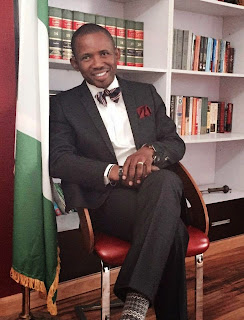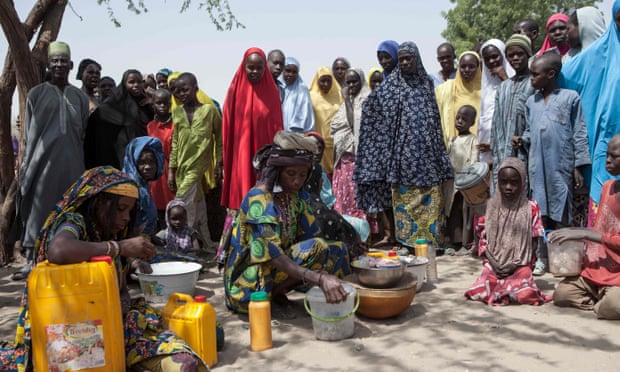It is 38 days since Professor Yemi
Osinbajo took over the mantle of leadership in Nigeria as acting
president following the absence of President Muhammadu Buhari, who has
been on vacation. Daily Trust on Sunday reviews some of the actions the
acting president has taken so far.
Written and compiled by Nuruddeen M. Abdallah, Isiaka Wakili & Clement A. Oloyede
 |
| Pic Illustration: Major Actions Executed By Acting President Osinbajo |
This is the third time Osinbajo is
acting as president. The first was in February 2016 when the president
embarked on a five-day vacation, and the second time was in June 2016
when President Muhammadu Buhari went on a trip to the United Kingdom to
treat an ear infection.
Unlike the era of the late President Umaru Yar’adua’s health crisis,
Buhari had transmitted a letter to the National Assembly, informing them
of his vacation and surrendering power to Osinbajo. President Buhari
began a two-week vacation in London but later extended it indefinitely
to address yet-to-be-disclosed medical concerns. Since then, the acting
president has been riding out the storm.
Following a directive from the acting president, the dollar came
crashing, 24 hours after the Central Bank of Nigeria (CBN) released $500
million to the banks, stabilising at 450 from N525. This is one of the
effects of the directive issued after the National Economic Council
meeting to the CBN to review its foreign exchange policy that weakened
the national currency.
The name of Justice Walter Onnoghen was also forwarded to the
National Assembly as acting Chief Justice of Nigeria, less than 24 hours
to the expiration of his three-month acting period, saving the country
another constitutional controversy.
A presidential task force was set up to address the skyrocketing
prices of foodstuff across the country, while seven bills passed by the
National Assembly were signed into law. Four others were rejected.
Face-to-face talks were held with communities in the creeks of the
oil-rich Niger Delta on how to stabilise the region, fix their
infrastructure and ensure a hitch-free flow of crude to the
international market.
Osinbajo has so far presided over five meetings of the Federal
Executive Council (FEC), awarding contracts worth billions of naira,
among others.
January 20: After the Davos summit
Osinbajo was attending the 2017 World Economic Summit in Davos,
Switzerland when Buhari travelled to London and he became acting
president. On his return in January 20, he swung into action by having
an engagement with service chiefs who briefed him on the situation in
The Gambia at that time. He also received briefing from some members of
the Federal Executive Council (FEC).
January 23: Unveiling 59 strategies for economic recovery
On January 23, Osinbajo presided over the Presidential Business
Forum, during which 59 strategies for implementing the Economic Recovery
and Growth Plan (ERGP) were unveiled. He later received the special
envoy of President Ismail Omar Guelleh of Djibouti.
January 24: Micro enterprise clinic launched
On January 24, Osinbajo launched the Micro, Small and Medium
Enterprises Clinics at the Old Banquet Hall of the Presidential Villa.
He later proceeded to preside over a meeting of the Presidential
Enabling Business Council.
January 25: Presided over his first FEC meeting
The acting president has so far presided over five weekly meetings of
the Federal Executive Council since President Buhari left for the
United Kingdom. The first was on January 25.
January 27: Met with the World Food Programme chief
On January 27, the acting president held a meeting with the executive
director of the World Food Programme (WFP), Ms Ertharin Cousin.
January 30: Met with Senate Leader over budget
On January 30, Osinbajo had an audience with Senate Leader Ahmed Lawan over the 2017 Appropriation Bill.
January 31: Met with Ortom, Saraki, Dogara, Kogi APC
On January 31, he also received the governor of Benue State, Samuel
Ortom. He later met with Senate President Bukola Saraki and the House
of Representatives Speaker Yakubu Dogara, over the economy and the 2017
budget.
A delegation of the All Progressives Congress (APC) chieftains from Kogi State visited him in the evening of January 31.
February 1: Inaugurated NPC commissioners
Shortly before presiding over the FEC meeting on February 1, during
which the Presidential Task Force on Food Security, mandated to reduce
prices of food items in the country, was constituted, Osinbajo had
inaugurated five commissioners of the National Population Commission
(NPC).
February 2: Met Saraki, Doagara again
The acting president again met with the Senate President and the Speaker of the House of Representatives on February 2.
February 6: Economic Recovery Forum opened
On February 6, Osinbajo declared open, the Agenda for Consultative
Forum on Economic Recovery and Growth Plan. He told the forum that the
nation was in a very serious economic situation, but assured that the
government remained committed to putting the economy on the path to
sustainable growth.
Osinbajo assured the nation that President Buhari is hale and hearty
and would return home as soon as he completed the necessary tests
recommended by his doctors in the United Kingdom after his reported
telephone conversation with the president.
February 7: Sent Onnoghen’s name for confirmation
The acting president, on February 7, sent the name of the acting
Chief Justice of Nigeria, Justice Walter Onnoghen, to the Senate for
confirmation.
He later issued a statement assuring Nigerians that with the federal
government’s complete focus on improving the economy, the current
recession would soon be history. “We are committed to a continuous
engagement with our people to explain government policies, receive
advice and criticism,” he said.
Later in the day, the acting president met with the then outgoing Ondo State governor, Olusegun Mimiko.
February 8: Met Kano Emir, as FEC approved N21bn roads contract
On February 8, Osinbajo chaired a meeting of the Federal Executive
Council, which adopted measures to reduce prices of food items in the
country. The meeting also resolved to restrict importation, from ECOWAS
countries, of finished products that could be produced locally. That was
in addition to the approval by the FEC, of N21 billion for the
construction of the Ilorin-Omu Aran-Kabba Road, Section I.
Later in the day, the acting president held a closed-door meeting
with the Emir of Kano and former governor of the Central Bank of
Nigeria, Muhammadu Sanusi.
February 9: Met Oba of Lagos, Labour, CSOs, Asset Recovery Committee
On February 9, Osinbajo met with the leadership of the Nigeria Labour
Congress (NLC) and the Trade Union Congress (TUC) and applauded them
for joining the ongoing anti-corruption campaign in the country. He gave
the commendation when leaders of the NLC and TUC visited him and
jointly presented an 18-point demand to the federal government. He also
received the Oba of Lagos, Oba Rilwan Akiolu.
Later in the evening, Osinbajo chaired a meeting of the Presidential
Committee on Asset Recovery. The meeting was attended by the
Inspector-General of Police Ibrahim Idris, the director-general of the
Department of State Services (DSS), Lawal Daura; the acting chairman of
the Economic and Financial Crimes Commission (EFCC), Ibrahim Magu and
the chairman of the Independent Corrupt Practices and Other Related
Offences Commission (ICPC), Ekpo Nta.
February 10: Visited the creeks in Bayelsa
Osinbajo headed for Yenagoa, the Bayelsa State capital on February 10
in continuation of his interactive engagements with oil-producing
communities in the Niger Delta region.
February 13: Met Governor Wike in Rivers
Similarly, on February 13, the acting president was in Port Harcourt,
Rivers State, to meet stakeholders of the oil producing communities.
During the meeting, he rolled out the framework for the clean-up
exercise of Ogoni land.
February 15: FEC approved N126bn roads contracts, national health policy
The Federal Executive Council meeting he chaired on February 15
approved the award of N126 billion road projects spread across Kano,
Bauchi, Adamawa, Kwara, Gombe, Enugu an Kaduna states. The council
meeting also approved the National Draft Health Policy 2016.
February 16: Directed the CBN to review foreign exchange policy
On February 16, the acting president inaugurated the National Road
Safety Advisory Council, mandated to advise the Federal Executive
Council and the National Economic Council on how to improve road safety
management in the country. He chairs the council.
He presided over the first National Economic Council meeting of the
year on February 16. The meeting directed the CBN to review the foreign
exchange policy. The meeting also resolved that fresh $250 million be
injected into the Sovereign Wealth Fund (SWF). The CBN subsequently
released about $500 million through the interbank market, where the 23
banks bought $371m.
The dollar crashed between N400 and N450 against the earlier N525.
The naira also gained against other currencies such as the Pound
Sterling, which traded at 645 a day earlier but slipped to 610 while the
Euro came down from N537 to N507 at the end of trading yesterday.
Also during the week, the CBN began moves to fund commercial banks
with additional Forex to carter for school fees, medicals and personal
travelling allowance (PTA) and business travel allowance (BTA) at a
special rate.
February 17: Signed 7 bills into law
On February 17, the acting president signed seven bills into law.
They were Oaths (Amendment) Act 2017; Defence Space Administration Act
2017; Veterinary Surgeons (Amendment) Act 2017; National Film and Video
Censors Board (Amendment) Act 2017; Pension Rights of Judges (Amendment)
Act 2017; Nigeria Institute of Soil Science (Establishment) Act 2017
and Mortgage Institutions (Amendment) Act 2016.
February 18: Attended Barrow’s inauguration in The Gambia
The only function Osinbajo had so far attended outside Nigeria as
acting president was the inauguration of the new president of The
Gambia, Adama Barrow, which took place in Banjul on February 18. The
Presidency did not announce that Osinbajo was going for the
inauguration; his aides only released the photographs of the event two
days after.
February 19: No money earmarked for vice president’s residence
On February 19, Osinbajo said that no money was earmarked for the
proposed new official residence of the vice president following reports
that he budgeted N250 million for an iron gate to the proposed
residence, which had been under construction since 2010 despite
lingering economic crisis.
February 20: Met wheat and rice task force
Osinbajo, on February 20, presided over a meeting of the Presidential
Task Force on Wheat and Rice. He assured that the nation would attain
self-sufficiency in food security. The meeting was attended by the
governors of Kano, Jigawa, Kebbi and Ebonyi states, as well as ministers
of agriculture and finance.
Osinbajo could not make his proposed visit to Ondo State where he was
expected to commission Governor Mimiko’s N1.5 billion event centre due
to ‘bad weather’.
February 21: Adopted 60-day action plan for business
On February 21, he chaired an expanded meeting of the Presidential
Enabling Business Council. The meeting, which was attended by Senate
President Bukola Saraki and House of Representatives Speaker Yakubu
Dogara and other government officials, adopted a 60-day national action
plan for business. Osinbajo asked the nation to expect changes in
business visas, as well as seaports and airports.
February 22: Approved N32bn for Kaduna bypass
The Federal Executive Council meeting he chaired on February 22
approved N32 billion for the resuscitation and completion of the 50km
dual carriage Kaduna eastern bypass highway. The Council also approved
$39.9 for the construction of the Cameroon-Nigeria border link bridge at
Ikot Efiem. The council also approved the Revised National Policy on
Environment.
Osinbajo also withheld assent to four bills recently passed into law by the National Assembly.
He asked the House of Representatives for approval to borrow $500
million out of the $1 billion Eurobond from the International Capital
Market (ICM). He said the $500 million would be used to fund the 2016
budget deficit.
After the FEC meeting, the acting president hosted the commander of
the United States-Africa Command, General Thomas Waldhauster and the
American ambassador to Nigeria, Stuart Symington.
February 23: Met economic team, Saraki, Dogara over budget
On February 23, the acting president, at his Aguda House residence in
Aso Rock Presidential Villa, presided over a meeting between the
National Economic Management Team and the leadership of the National
Assembly over the 2017 budget.
He summoned Inspector-General of Police Idris Ibrahim over the kidnap
of two German archaeologists, Prof. Peter Breunig and Mr. Johannes
Behringer in Kagarko Local Government Area of Kaduna State.
February 23: Unscheduled visit to Lagos airport
The acting president also paid an unscheduled visit to the Murtala
Muhammed International Airport, Lagos, as part of the 60-day action plan
for business reforms in the country. The visit took many airport
workers by surprise. Osinbajo inspected facilities and interacted with
airport officials.
February 24: Sacked 10 NCAA directors, met poultry farmers
Less than 24 hours after his unscheduled visit to Lagos airport, the
federal government announced the sack of 10 directors of the Nigeria
Civil Aviation Authority (NCAA). Three new directors and a general
manager were also appointed for the Federal Airports Authority of
Nigeria (FAAN).
He also met with representatives of the poultry farmers in the
country. He said the government was planning urgent relief for poultry
farmers in the country to save the industry from collapse.
Those in attendance were the comptroller-general of the Nigeria
Customs Service, Hameed Hali, CBN governor, Godwin Emefiele and Minister
of Finance Kemi Adeosun.
How Osinbajo spends his day
Before he became acting president, as vice president of Nigeria and a
senior pastor in the Redeemed Christian Church of God (RCCG) in Lagos,
he was used to attending the church’s weekly Holy Ghost night vigil
along the Lagos-Ibadan highway. Each time he attended the programme, the
vice president’s wing of the State House always appeared deserted,
especially on Fridays, with only a few members of staff and aides
sighted in their offices.
Now, a close monitoring of the acting president’s itineraries and
programmes shows that he is, for obvious reasons, keeping vigil only at
the Aso Rock Presidential Villa in Abuja, attending to state matters.
Except he has any official function to attend outside the State
House, the acting president resumes in the office as early as 9.00am and
most times, remains there, holding meetings, treating files and
discharging other duties till about 9.00pm. And when occasionally he
travels at weekends, it is strictly on official duties.
Since Osinbajo became acting president, the vice president’s wing of
the Presidential Villa, from where he operates, has been a beehive of
activities. He only moves to the Council Chambers of the Presidential
Villa for the weekly meetings of the FEC and the monthly meeting of the
National Economic Council (NEC).
Osinbajo has continued to combine his duties as acting president with
the various responsibilities assigned to him as vice president who
heads some vital organs of the executive and several presidential
committees. He chairs the National Economic Management Team (NEMT),
which is the government’s think-tank responsible for the formulation of
the country’s economic policy direction, as well as the NEC, saddled
with the responsibility of guiding the president on his economic
policies.
Osinbajo equally heads the Presidential Committee on Asset Recovery
(PCAR); the Presidential Enabling Business Council (PEBEC); the
Presidential Committee on the Reconstitution of Federal Government
Boards of Parastatals, Agencies and Commissions; the National Council on
Privatisation (NCP); the Federal Road Safety Advisory Council, among
others.
Osinbajo is in charge - Spokesman
The Presidency told Daily Trust on Sunday that Osinbajo is fully in
charge of the affairs of the nation, contrary to some speculations. His
senior special assistant on media and publicity, Mr. Laolu Akande, said
Osinbajo was doing everything expected of him as acting president.
“Mr. President is on vacation and has asked for time to rest. In
accordance with the constitution, he handed over power to Mr. Vice
President. This is a commendable and unprecedented act of a statesman.
So the vice president, as acting president, is fully in charge as Mr.
President requested in his letter to the National Assembly,” Akande
said.
Above is an Editorial content of Daily Trust on Sunday








































